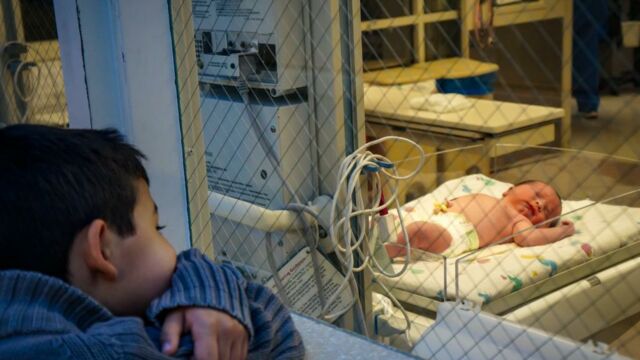On May 31st, 2019, a 34-year-old woman born without a uterus, and therefore infertile due to a congenital syndrome, received the organ from her 57-year-old mother. It was the very first uterine transplant in France. Almost two years later, the Foch hospital was once again the scene of an incredible medical feat, as a baby was born on February 12th, 2021 following this organ donation from the living donor. A little girl was born weighing 1.845 kilograms.
Discover our latest podcast
A promising and hopeful technique
This announcement is hope for all patients born without a uterus or those who have had it removed. Deborah, the new mother, now 36 years old, was suffering from Mayer-Rokitansky-Küster-Hauser syndrome (MRKH), a condition leading to congenital aplasia i.e., the arrested or insufficient development of an organ, in this case of the uterus, which is estimated to affect around one in every 4,500 women at birth.
This uterine transplant is also an experimental alternative to adoption or surrogate motherhood, which is banned in France for women who want to become mothers in this way. The first birth in the world resulting from this transplant technique took place in Sweden in 2014. This incredible event following ten years of research was then announced in the prestigious The Lancet medical journal.
While all previous attempts by the US and Turkey have failed, in Brazil a birth was also the result of a transplant from a donor who died in the hospital in Sao Paulo. A total of about 20 babies are believed to have been born worldwide after uterine transplants, according to Prof. Ayoubi, head of the gynaecology-obstetrics department at Foch Hospital. Other trials with related live donors are planned at this hospital.
A ‘temporary transplant’ to have a baby
Moreover, although the immunosuppressive anti-rejection treatment is less severe than for other transplants, the transplant of the uterus is not intended to be permanent, because of these drugs. It is in fact a ‘temporary transplant’ with the sole aim of having a child, says Professor Ayoubi. However, for patients who want it, it is possible to start a second pregnancy, which is almost miraculous. This is the case with Deborah, who will first have to wait a year.















